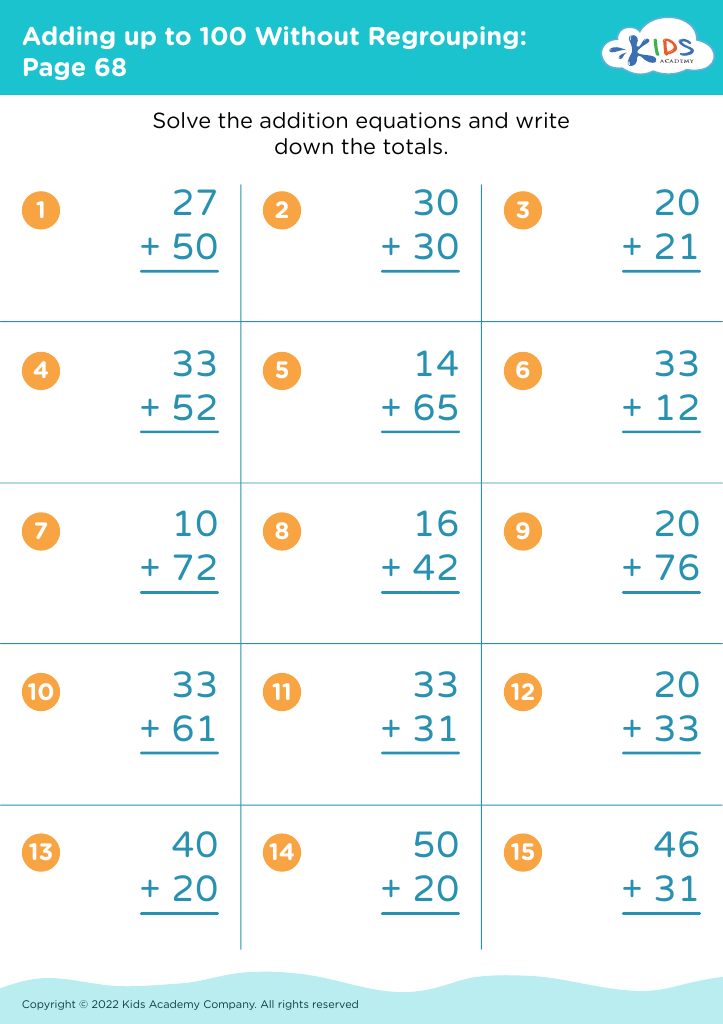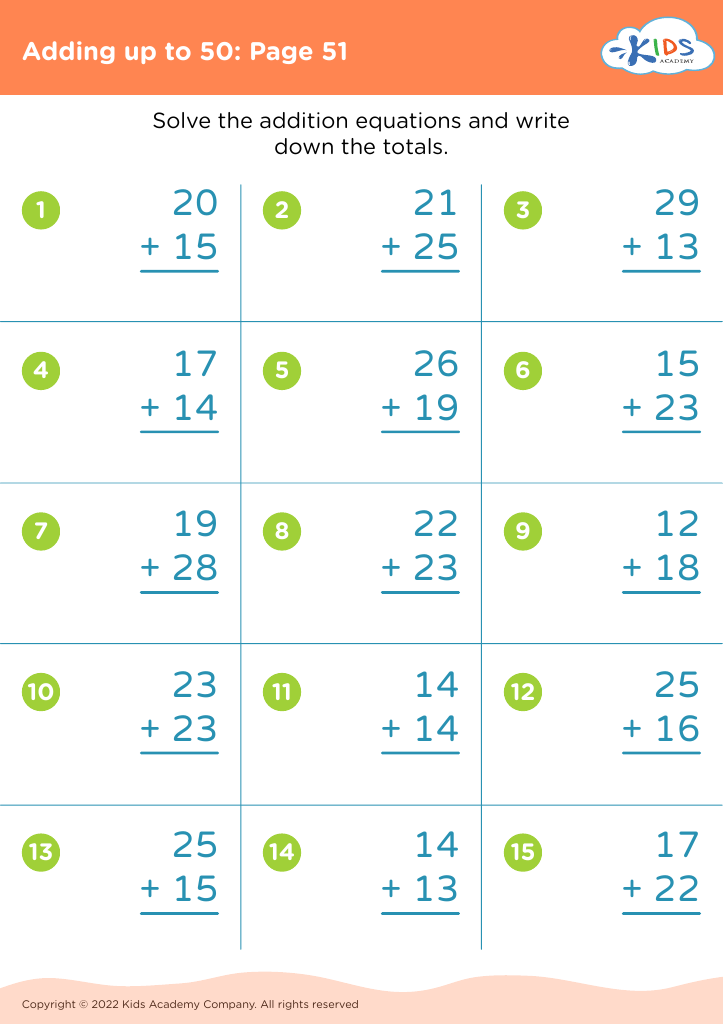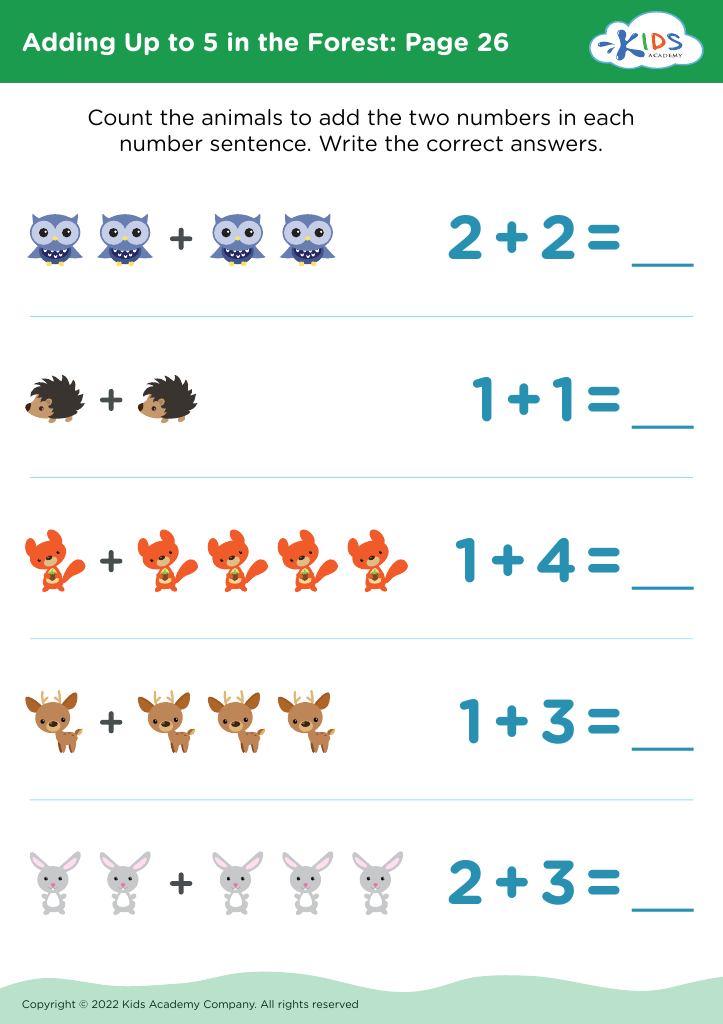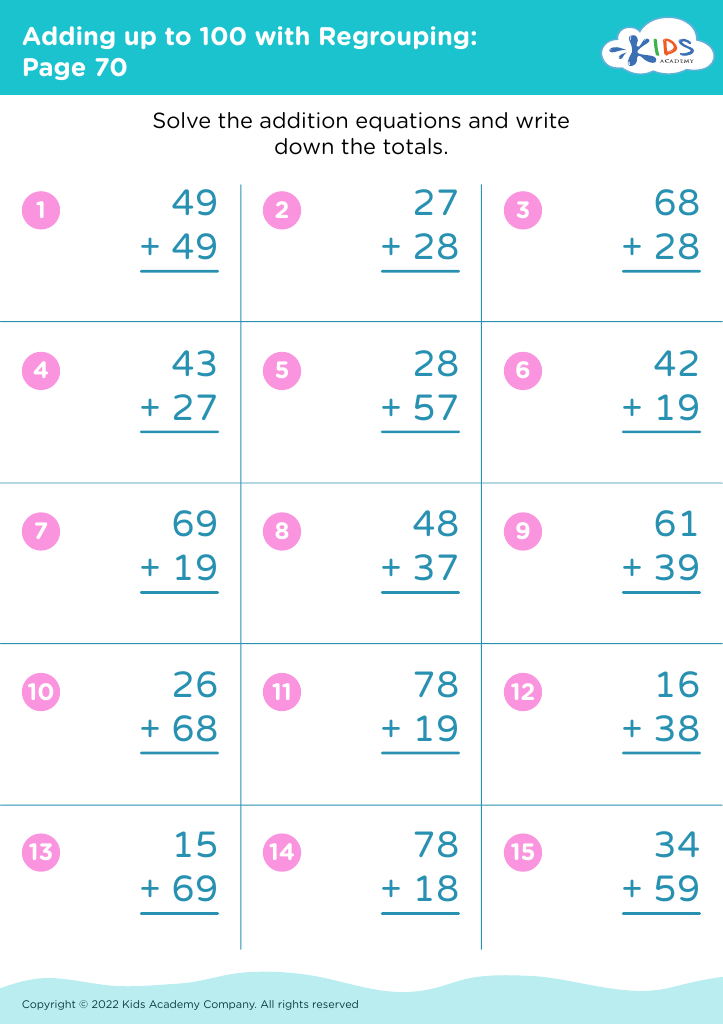Developing problem-solving skills Addition Worksheets for Ages 4-8
6 filtered results
-
From - To
Enhance your child's mathematical journey with our "Developing Problem-Solving Skills Addition Worksheets" designed specifically for kids ages 4-8. These engaging worksheets focus on fostering critical thinking and problem-solving abilities through a variety of fun, interactive addition exercises. Each activity encourages young learners to approach problems creatively, reinforcing foundational math skills while boosting confidence. Perfect for both classroom and home use, our worksheets align with educational standards to ensure children are prepared for future challenges. Join us in cultivating a love for learning that extends beyond math while developing essential skills your child will use for a lifetime!
Developing problem-solving skills in the context of addition for children aged 4-8 is crucial for several reasons. First, this foundational math skill supports cognitive development. As children learn to solve addition problems, they engage in critical thinking, which enhances their overall mental acuity. By tackling various problems, they learn to analyze situations, identify patterns, and craft strategies for finding solutions.
Additionally, mastering addition builds confidence. When children successfully solve problems, they experience a sense of achievement, encouraging them to tackle more complex challenges. This confidence translates to other areas of their learning, promoting a positive attitude and fostering a lifelong love for math and learning in general.
Furthermore, problem-solving skills in addition set the stage for future mathematical concepts. Early exposure helps students grasp more complex operations later on, as they develop a solid understanding of numbers, relationships, and logical reasoning.
Finally, by emphasizing problem-solving in addition, parents and teachers are equipping children with practical life skills. These abilities foster independence and resilience, helping children to navigate challenges both academically and in everyday situations. In summary, supporting problem-solving skills in early math lays the groundwork for success in school and beyond.












.jpg)













